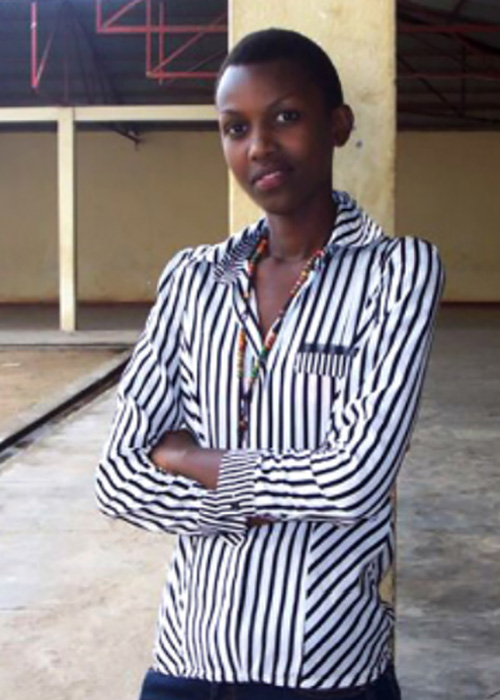
“Yes, I am Tutsi, but that is not important.”
As a young girl in Burundi, Melyssa had learned how quickly anger could morph into mob violence. One day, she had been walking through a crowd with her father when a shout rang out: “Thief!”
Melyssa had frozen in place, watching as the crowd grabbed a nearby man and started beating him. They had forced tires around the alleged thief and lit him on fire, leaving the man to burn to death. Not even her father, an off-duty police officer, had done anything to stop.
“Is there nothing we can do?” Melyssa asked.
“No,” her father explained. “Sometimes, to protect your family, you have to accept things as they are.”
But years later, with many people blaming a Tanzanian refugee for the death of two children, Melyssa was not willing to accept things as they were. She had completed a Search for Common Ground training on dialogue and nonviolent communication, and she wanted to put her skills to use.
These skills were in high demand in Rumonge, a small city on the southeast coast of Lake Tanganyika where Melyssa lived. From 1972 to 1993, cycles of ethnic violence had displaced millions of Burundians, and many were returning home now, fueling tensions over land, property, and social integration.
“Returning refugees are often seen as wanting to take the land of the people who didn’t flee,” Melyssa said. “I see some of the returnees’ children going to the market, and whenever something bad happens, the people always first accuse the returnees.”
The death of the two children had caused an uproar, with many people encouraging others to avoid contact with the returned refugees. The threat of violence hung in the air.
Melyssa decided to launch an informal dialogue between youth from the returnee and local communities to dispel the fear and rumors. Initially, her parents opposed this work—not least because many of the returnees were Hutu, while Melyssa was Tutsi. But the young peacebuilder marched on.
“Yes, I am Tutsi, but that is not important,” Melyssa said. “What is important is that I am a Burundian. For me, being a peacebuilder means that I love my country, and I want others to also live well…. I think it is our differences that truly lead us to live in harmony.”
Melyssa’s work helped to resolve the situation, with the Tanzanian refugee avoiding mob punishment. The experience encouraged Melyssa to stick with her dialogue training—and even to dream a bit bigger.
“I dream first to be an administrator of my commune,” she said. “Why not go even further and change many things in the whole country and not just the commune?”